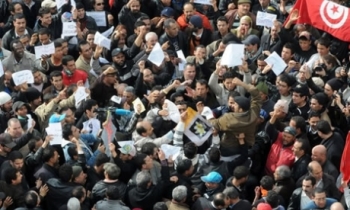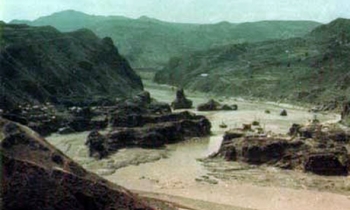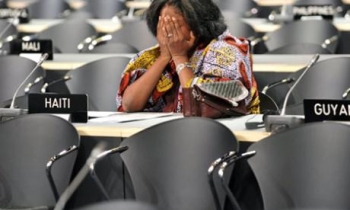CAIRO, Egypt -- For Arab news media, the war between Israel and Hezbollah is a fresh chapter in a tale with strong emotional pull and well-defined enemies, and has pushed Iraq to the back of newscasts and off front pages.
"Iraqi news has not been ignored by the Arab satellite channels' newscast, it still exists, but has decreased sharply in the last two weeks," said Sameeha Dahroug, the former head of Egypt's Nile satellite channel.
As with any breaking story, experts say, the fighting between Israel and Hezbollah is new and more compelling than the bloody but murky Iraq conflict.
The Israeli-Hezbollah struggle also better strikes emotional and historical chords with the Arab audience than does Iraq, where Arabs are fighting each other as well as the United States.
"In Lebanon, the case is completely different. We have a peaceful unarmed people, who are held close to every Arab heart, facing a destructive Israeli military machine - the first enemy of the Arabs - absolutely without pretext," Dahroug said.
More than 400 civilians, mostly Lebanese, have been killed in the fighting, the focus of much Arab media coverage. Unlike American television and newspapers, reports in Arab media - much of which is state-controlled - feature graphic photos of dead children, disemboweled bodies and severed limbs.
The reports heighten the already anti-Israeli and anti-U.S. sentiment among Arabs.
"The confrontation with Israel is always in the Arab mind," said Abdel Bari Taher, a Yemeni political analyst at the Yemeni Center for Study and Research and also former head of the Journalists' Syndicate there. And Arabs see Lebanon "as the beating heart of the region - the media, cultural and tourism center - anything that happens in Lebanon affects the larger Arab world automatically."
Abdul Khaleq Abdulla, a U.S.-educated political scientist at Emirates University in the United Arab Emirates, a U.S. ally in the Iraq war, said the news coverage of Lebanon is deepening Arab hatred of the United States.
"People hold America morally and politically responsible for this. They hate America at this point, and it will last," he said. "They see the destruction of Iraq and Palestine on a daily basis. And now they see destruction in Lebanon on a daily basis. The blame leads through Tel Aviv and straight to Washington."
The Arab media emphasize that Israel's bombing of Lebanon is being carried out with U.S.-made F-16 and F-15 warplanes dropping U.S.-made guided bombs - paid for with American tax dollars. This week, front pages splashed reports that Washington was rushing an emergency shipment of "bunker buster" bombs to Israel's air force.
Some Arab regimes quietly share Israel's low opinion of Hezbollah, which is backed by Syria and Iran, and offered criticism at the time of the Hezbollah raid. But those opinions have been forced below the surface by Israel's attacks on Lebanon.
"Lebanon is very important for Arabs, and its significance comes from the large number of Arab tourists and investors in the country. Many Arabs have families living there," said Nekhleh al-Haj, news director at the Al-Arabiya satellite news channel.
Four Dubai-owned television stations said a Friday telethon raised $13.4 million for the Lebanese people, some 750,000 of whom have been left homeless.
While Arabs still care about Iraq, "the horrors we see there today, regrettably, are commonplace," al-Haj said, while the Lebanon story is fresh. "The sad thing is that the car bombs and other attacks have become as routine, not news for the audience."
Also, it is easier to cover Lebanon.
"We have lots of reporters in place and so far they have not been targeted, unlike in Iraq, where it is so dangerous and reporters can't move freely," he said.
Not that it is completely safe. At least one journalist has been killed.
Meanwhile, the Committee to Protect Journalists, based in New York, said it had asked Israel to investigate why its jets fired missiles near Arab television crews covering the effects of its bombardment in Khaim, Lebanon, on July 22. Israel denies targeting journalists.
Jamal Dejani, director of Middle Eastern Affairs at the U.S. satellite network Link TV, gathers reports from across the Arabic media. He said the shift away from Iraq coverage, especially on independent networks, reflects a quest for ratings, much like American television.
Al-Jazeera, the pan-Arab satellite channel, has labeled the current fighting in Israel and Lebanon "The Sixth War," comparing it in history to the epic battles of the past in the Arab-Israel conflict.
It's "the saga that has gone on for decades. It reflects how people are seeing this war," Dejani said.
By comparison, "one more car bomb in Baghdad, another 100 killed ... the sex appeal of it has weakened," he said, not only on Arab television but in American media, too.
"You have (CNN's) Anderson Cooper parachuting into Beirut, all these superstars are heading into Lebanon. Even (CNN's) Dr. (Sanjay) Gupta.
"I was watching thinking that he'd tell me about my cholesterol, but he's running around putting his face on the camera and giving his take on the hospitals there. If it's good enough for Sanjay Gupta, it's enough to kill (the) Iraq (story)."
Associated Press reporters Jim Krane in Dubai, United Arab Emirates, and Tarek El-Tablawy in New York contributed to this report.









